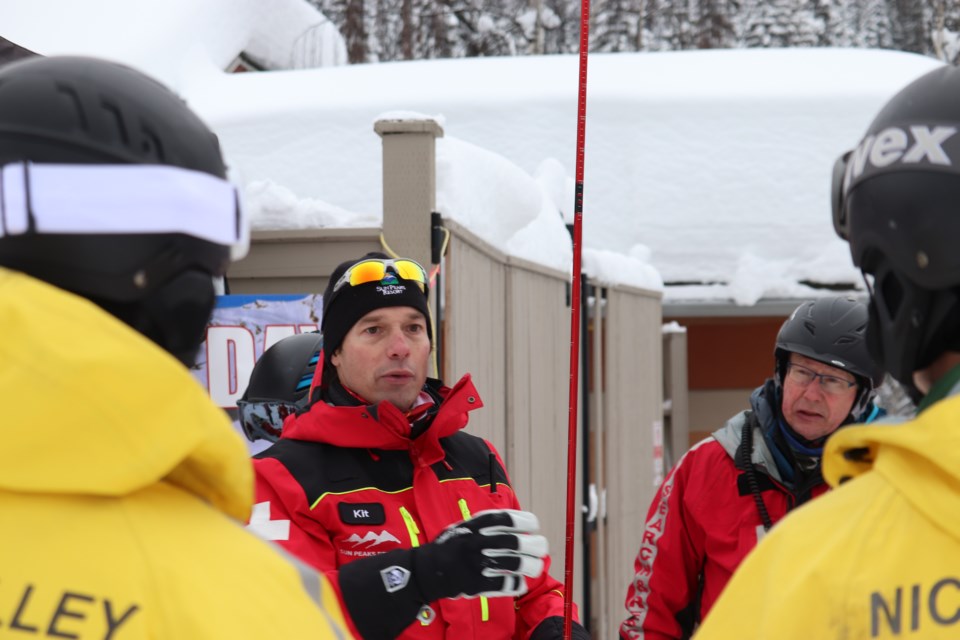Minutes make all the difference in avalanche response: a person trapped for 15 minutes or less has around a 90 per cent chance of survival but as time presses on, the odds drop drastically.
On Saturday (Jan. 18), 10 members of Kamloops Search and Rescue (KSAR) and two from Nicola Valley Search and Rescue (NVSAR) learned and practised the most efficient ways to save minutes while freeing folks trapped under ice and snow.
"Ultimately, we want every member to be trained in avalanche skills and that's one of our goals for down the road, a couple years down the road," says KSAR member Jeremy Markel.
The Kamloops area does not have a lot of terrain at risk of an avalanche — Markel says most of the calls in the winter are for snowmobilers who get stuck due to accidents. But the avalanche certification means members could be called out to other events around B.C., which happens a couple of times a year.
When a sledder was trapped by an avalanche in the Merritt backcountry, crews from NVSAR and Hope SAR responded while Kamloops was on stand-by.
"If there's a large event anywhere in the province, the RCMP can call upon teams to come from anywhere, and they will do that if need be," says Markel. "So this way we have a pool of people. If there was a large incident in Pemberton or Revelstoke, you know, conceivably some of us could be called up to travel out there and assist with it."
About half of the KSAR members had prior avalanche training while the other half were doing it for the first time. And while there's a variety of different strategies to learn about how to probe for people trapped under snow and ways to dig them out, the biggest lesson is that people need to be prepared when they head out in the backcountry.
Each person who heads beyond the out-of-bounds rope should pack a shovel, a probe, and a beacon or transceiver. In many cases, search and rescue won't be able to reach a trapped individual in time, so the group they're (hopefully) travelling with may need to act.
"Unfortunately, in the avalanche world... 15 minutes is crucial," says Markel. "One hour, you have a possibility of being alive, but by the time you get SAR teams organized, get helicopters or if it's bad weather, you might have to sled out; it can be hours. And at that point, it's usually not a rescue mission."
Markel even made CBC a few weeks back for comments on social media that called out a trio of people who went into the backcountry unprepared.
To learn more about rescue strategies and the tools they use, click through the album above.



